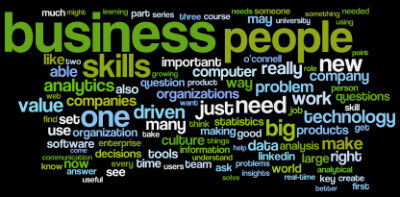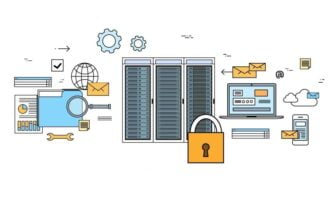 The field of data science is admittedly an attractive one for people who are already skilled with computers and statistics. With big data all the rage these days, the demand for qualified data scientists is higher than it has ever been.
The field of data science is admittedly an attractive one for people who are already skilled with computers and statistics. With big data all the rage these days, the demand for qualified data scientists is higher than it has ever been.
 The field of data science is admittedly an attractive one for people who are already skilled with computers and statistics. With big data all the rage these days, the demand for qualified data scientists is higher than it has ever been. Not only does the average data scientist command a high salary (more than $110,000), but some of the skills associated with the profession were listed on LinkedIn as the top skills that got people hired last year. Everyone seems to want to use big data to improve their businesses, even companies that you normally wouldn’t associate with cutting edge technology. With data scientists in so much demand, you probably are interested in pursuing this career path. Being a data scientist can be a rewarding and fulfilling experience, but it’s not the easiest goal to attain. If you’re still struggling on how best to become a big data scientist, the following tips should prove useful in getting yourself noticed above the competition.
The field of data science is admittedly an attractive one for people who are already skilled with computers and statistics. With big data all the rage these days, the demand for qualified data scientists is higher than it has ever been. Not only does the average data scientist command a high salary (more than $110,000), but some of the skills associated with the profession were listed on LinkedIn as the top skills that got people hired last year. Everyone seems to want to use big data to improve their businesses, even companies that you normally wouldn’t associate with cutting edge technology. With data scientists in so much demand, you probably are interested in pursuing this career path. Being a data scientist can be a rewarding and fulfilling experience, but it’s not the easiest goal to attain. If you’re still struggling on how best to become a big data scientist, the following tips should prove useful in getting yourself noticed above the competition.
Any first step in getting to where you want in a career should include getting the right education. With big data science being such a new field, it may be tough to find programs at universities and other institutions specifically dedicated to this course of study. Luckily, many top-notch schools have responded to the growing need by developing their own courses designed to train a new generation of data scientists. These come in the form of Master’s and Ph.D. programs that give students the advanced skills they’ll need to land a job in a data science career. Some of these programs come from famed learning institutions like Stanford, NYU, Columbia, and Harvard.
Getting a Master’s or Ph.D. is basically a requirement now, since nearly 90 percent of data scientists have a Master’s degree, while nearly half have a Ph.D. If a degree in data science isn’t available, you can also show your expertise by getting a degree in computer science, machine learning, or mathematical statistics. Educational opportunities may also be available through free online courses, but most experts seem to agree that these classes don’t do enough. They act more as a learning template for the future and don’t teach the skills needed to secure a job in the near future. Online courses may be used more as a supplemental learning tool to go with your already extensive education, but it shouldn’t be looked at as a total replacement.
Of course, all these classes are there to teach you some of the technical skills employers will be looking for. The list of these skills can be a lengthy one, but a few of the most important include expertise in Python coding, familiarity with using big data tools like Hadoop and Apache Spark, and experience in working with unstructured data. The unstructured data skill is perhaps one of the more challenging to acquire since many organizations struggle with it even today, but proving you can manage and create real value from it will attract attention from employers of all types. Showing your skills with ad-hoc data analysis is a necessary step on the path to a full data science career.
While much of the focus may be placed on the technical aspects of what data scientists bring to the table, other skills are needed too. Data scientists need to have deep knowledge of the industries they are in. This helps them provide unique insights into how data can be used to tackle some of the problems businesses are trying to solve. A data scientist with extensive knowledge about the healthcare industry will have a better chance of landing a job there than someone with little healthcare experience, even if they display similar tech talents. You’ll also want to brush up on your communication skills. You’ll need to help those who may not be familiar with big data understand how it can be used and why it will benefit the business. With the right communication, you can become a valuable member of any team.
Of course, there are other skills that are hard to measure — intangibles, if you will. Having a curious mind that’s always wanting to know more is a definite attribute you should obtain. Practicing your creativity (the old “thinking outside the box” mindset) will also help you excel as a data scientist. These are just a few of the many skills and characteristics that businesses want to see from their top data scientists. With the right education and willingness to expand your skills, you can position yourself at the top of your field for a long time to come.









